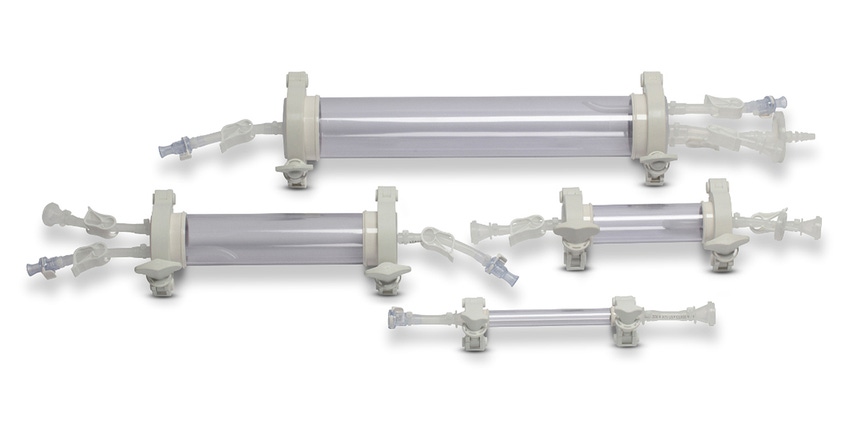TBL Performance Plastics initially ran tests with a polycarbonate, but it failed to achieve the strength, transparency, heat resistance, hydrolytic stability, and retention of mechanical properties required by the application.
March 16, 2021

TBL Performance Plastics, a supplier of single-use systems and components for bio-pharmaceutical manufacturers, drug-development companies, contract manufacturers, and related OEMs, has selected a transparent polysulfone resin from Solvay to extrude single-use tubular sight gauges for a customer. Initially, the company had conducted trials with polycarbonate, but the material failed to achieve the strength, transparency, heat resistance, hydrolytic stability, and retention of mechanical properties required by the application, according to Solvay. Udel P-1700 PSU resin met those requirements.
In addition to transparent Udel P-1700 PSU resin, which is extruded into the single-use tubular sight gauges, TBL chose an opaque, white grade of Udel PSU resin to create the connection between the sight gauge and the tubing used in various critical bio-processing applications. This product is over-molded onto the sight gauge to form a secure and hygienic gasket that is affixed with a mechanical clamp.
“Udel P-1700 PSU resin is a major breakthrough for the pharmaceutical industry,” said Robert DuPont, Managing Director of Operations for TBL Performance Plastics. “One key factor in choosing Udel P-1700 PSU resin is the incredibly rigorous regulatory testing done by Solvay, particularly for extractables and leachables under the BioPhorum Operations Group (BPOG) standard. Solvay has taken a lead position in providing this data to its customers. Based on the [resin’s] exceptional performance and our productive collaboration with Solvay, we are planning to expand the use of this material into novel products currently under development,” added DuPont.
The resins are animal-derived component free (ADCF) and meet USP Class IV and ISO 10993 requirements for biocompatibility, said Solvay.
About the Author(s)
You May Also Like


